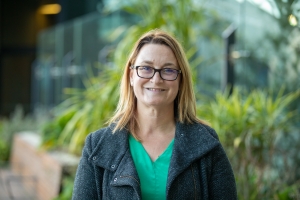
Welcome to this addition of the ISLAND Project newsletter. I am one of the Project Officers for the ISLAND Project, Justine Keay. Like many Tasmanians, I have a family member living with dementia. A year ago, my 80 year old step-father was diagnosed with Alzheimer's Disease. In the early stages of dementia, we know his cognition will not improve and will get worse. For those of you who have cared for a loved one with dementia, you understand this experience better than me. And, I am sure, you would like fewer people in our community to have to experience this condition. Your contribution to the ISLAND Project research helps us to achieve this goal - reducing the incidence of dementia in Tasmania. As you are aware this is a 10 year research project, and the information you give us each year is very important because it enables us to track changes related to dementia risk across Tasmania. We know that your contribution to this type of research involves sharing lots of information without getting a personal diagnosis or feedback. It’s very different than going to a doctor. This taps into one of the key reasons for our research: there is a lot more that needs to be done to arm doctors with evidence about what you can do in your daily life to reduce your dementia risk. ISLAND will help build this evidence! The information you provide by doing the annual assessments is incredibly valuable for informing future health policy and practice. Access to the annual assessment closes on November 30 - go to this link and log in! The ISLAND Project will be the largest dementia prevention project in the world! To those that have completed the annual assessments, THANK YOU! You have helped Tasmania lead the way and people across the world will be grateful for your contributions to dementia prevention research. If you have questions about the ISLAND Project, how it is progressing, or why we are asking you to complete cognitive tests or give a blood sample, please join us for a free webinar this Thursday - register here.
|